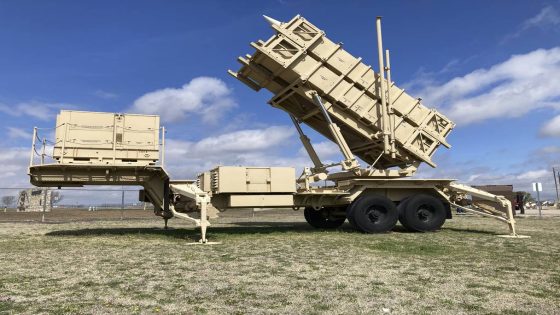With only four months until he leaves the world stage, Biden’s final Quad meeting took place amid international anxiety about where US foreign policy is headed after November’s election, particularly in the event of a second Trump presidency.
But uncertainty also lingers over the four-nation alliance, with Biden departing in January, Kishida standing down within days, and Albanese under pressure in Australia as an election looms next year.
The president, however, is adamant that the group will endure, “way beyond November”.
“While challenges will come, and the world will change, the Quad is here to stay,” Biden said in his opening remarks at Archmere Academy, the school that he attended, along with his children.
The leaders on Saturday announced a range of initiatives, including a “Quad Cancer Moonshot” to help protect women across the Pacific from cervical cancer by expanding the HPV vaccine program. The Australian government will contribute $16.5 million to the partnership, with Andrew and Nicola Forrest’s Minderoo Foundation providing an additional $13.1 million.
Loading
“Tragically, women in the Pacific die of the disease at up to 13 times the rate of women in Australia,” Albanese said. “These people are not numbers – they are our neighbours, members of our Pacific family. And we are stepping forward to help.”
They also unveiled a joint Coast Guard operation that will see, for the first time, Australian, Japanese and Indian personnel spend time on a US Coast Guard vessel.
A maritime agreement that monitors illegal fishing and other unlawful international activity will also be expanded, with the new pact now including the Indian Ocean.
Following China’s confrontations with the Philippines in the disputed waters of the South China Sea, the group also issued a joint communique after the meeting, condemning the actions without specifically naming Beijing.
“We continue to express our serious concern about the militarisation of disputed features, and coercive and intimidating manoeuvres in the South China Sea. We condemn the dangerous use of coast guard and maritime militia vessels, including increasing use of dangerous manoeuvres,” they said.
Joe Biden, joined by Prime Minister Anthony Albanese, Japan’s Prime Minister Fumio Kishida, and India’s Prime Minister Narendra Modi, walk out to speak about a Quadrilateral Cancer Moonshot initiative on the sidelines of the Quad leaders summit.Credit: AP
Asked about Biden’s hot mic comments – which come as China faces slowing growth, a real estate challenge and demographic shifts – an administration official said: “I don’t think there’s much to elaborate on that.”
“It’s not surprising that China would have been on the agenda. It’s an Indo-Pacific convening. China is a major country in the Indo-Pacific,” the official said.
The four-person summit was a chance for the US president to put his stamp on one of his defining foreign policy achievements. As a leader who has often said that “politics is personal”, Biden began the gathering by giving each of the leaders an individual tour of his personal residence in Wilmington, starting with Albanese on Friday.
Ahead of that meeting, the prime minister suggested he would use the Quad summit to also speak to Modi about India’s “nest of spies” in Australia, which was kicked out after being caught trying to steal secrets about sensitive defence projects, airport security, and trade.

Prime Minister Anthony Albanese and India’s Prime Minister Narendra Modi at the Quad leaders summit.Credit: AP
However, the pair did not end up having a bilateral meeting on Saturday and could only have a “quick discussion” in between formalities, Albanese said.
Asked if this suggested tensions in the relationship, the prime minister replied: “Relations between India and Australia have never been stronger”.
As for the future of the Quad more broadly, he said he was “absolutely confident” that it was getting stronger. “All four nations are committed to the Quad playing an important role,” he said.
Get a note directly from our foreign correspondents on what’s making headlines around the world. Sign up for the weekly What in the World newsletter here.
Source Agencies

